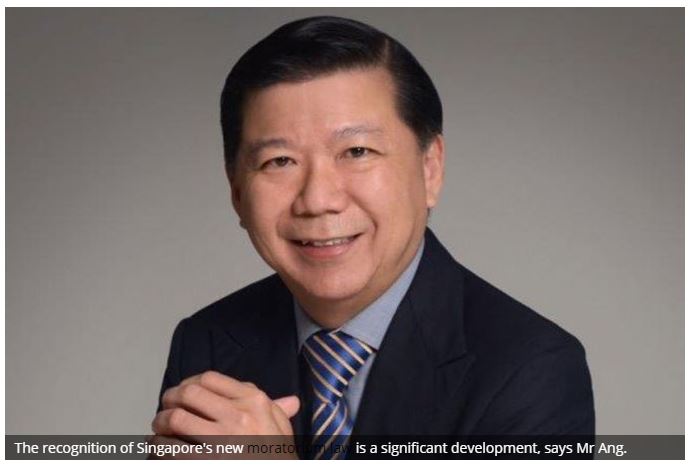Singapore closer to becoming Asia’s debt restructuring hub
SINGAPORE is a step closer to fulfilling its aim to become an international debt restructuring hub, akin to London or New York, after a landmark ruling by an English court to recognise the city-state’s new moratorium law for insolvency and corporate restructuring.
This comes after the High Court of England and Wales last month recognised the reprieve granted by the Singapore High Court to H&C S Holdings from its creditors as the troubled iron ore trader works on its restructuring plan.
What happened in this case was that while the breathing space protection was extended by six months to July by the Singapore court, global mining giant Glencore commenced proceedings against the company through a London arbitration.
“Because the Singapore moratorium order only applied to the Singapore proceedings, it doesn’t have extra-territorial effect; this was a test case for us to see if the UK courts will recognise the new Companies Act provisions on stay of proceedings outside of Singapore and in the London arbitration proceedings,” Rajah & Tann partner, Chua Beng Chye, who assisted in the English court hearing, told The Business Times.
This is the first time a court outside Singapore has recognised the enhanced section 211B of the Singapore Companies Act which deals with a court-sanctioned arrangement or scheme of arrangement between a distressed or an insolvent company and its creditors.
The section was amended by Parliament in 2017 as part of a major overhaul of Singapore’s corporate restructuring and insolvency laws. It made it easier for companies, especially those with creditors from around the world, to be rescued and rehabilitated.
By incorporating elements of the US Chapter 11 Bankruptcy Code – which has extra-territorial reach through the personal jurisdiction of the US bankruptcy courts that can extend to acts outside of the US – with the traditional creditor scheme of arrangement, Singapore is seeking to create a new regime that incorporates the “best of both worlds” and to attract debtors and creditors in the region to come here for corporate restructuring.
Rajah & Tann Singapore’s new managing partner Patrick Ang too said that the High Court of England and Wales’ recognition of Singapore’s new moratorium law is a significant development for Singapore’s debt restructuring and insolvency regime.
“It addresses previous uncertainties on whether the English courts would recognise our new moratorium order and whether a Singapore scheme of arrangement proceeding is a ‘foreign proceeding’ for purposes of UK’s cross-border insolvency regulations,” Mr Ang said.
Prior to the changes, the Singapore scheme of arrangement regime closely followed that found in England.
Mr Chua said the recognition by the UK court “brings UK and Singapore courts’ insolvency and restructuring regimes much closer together”. This is especially important given that more Singapore companies have international businesses.
“It is a positive thing because it moves towards a more universalist approach, rather than having differing decisions and having to file completely afresh restructuring and insolvencies in multiple jurisdictions,” Mr Chua explained.
Since Singapore amended its restructuring laws, Mr Chua has observed an increase in the number of applications to make use of the new provisions affording automatic moratorium for companies in distress. Most have been genuine, but a few were only looking to buy time and were not serious restructuring applications.
In a May 2017 feature article in Butterworths Journal of International Banking and Financial Law, legal experts Paul Apáthy and Emmanuel Chua noted that the super-charged moratorium law with its powerful tools of the Chapter 11 process “still retains much of the relative flexibility, speed and cost efficiency of the scheme of arrangement procedure”, making it a popular mechanic for cross-border restructurings.
Apart from an established arbitration centre, Singapore is also an important financial and professional services hub for Asia.
“Its proximity to and central role in the region makes it a natural venue for South-east Asian restructurings. It also has the advantage of an English-derived common law legal system that is well-understood, and a well-regarded judiciary,” the authors said.
Whether Singapore can become a true global player will depend on its ability to attract international restructuring professionals to the jurisdiction, and the development of a sophisticated ecosystem.
Mr Chua, together with Raelene Pereira, have been providing counsel to H&C S in Singapore, and Mr Ang filed an expert report with the English court in support of the recognition order. Locke Lord partner David Grant and senior counsel Marc Abrahams represented the company in the English proceedings.
Source: https://www.businesstimes.com.sg/government-economy/singapore-closer-to-becoming-asias-debt-restructuring-hub-0


 English
English




